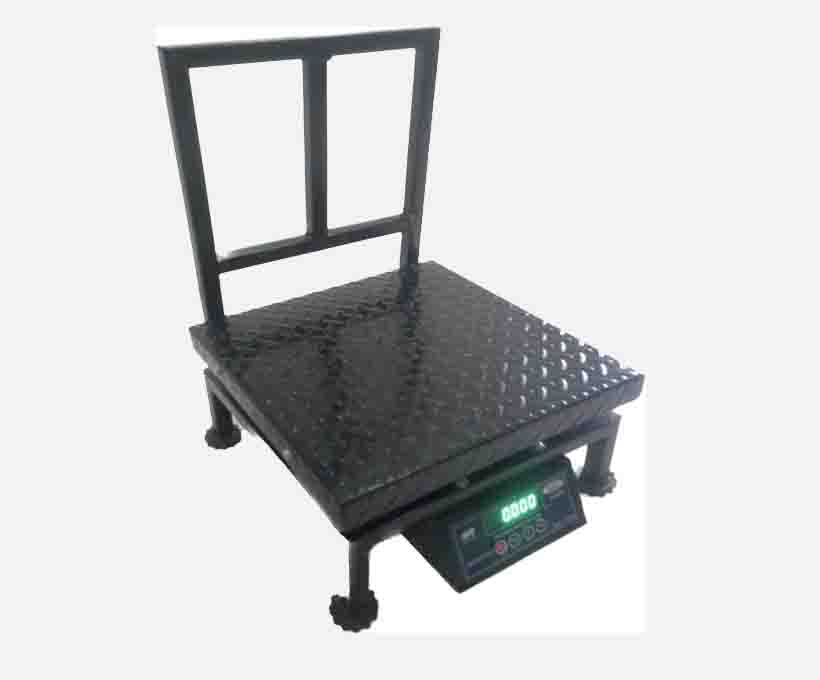A bench weighing scale is a type of weighing equipment designed for use on a bench or tabletop. These scales are versatile and find applications in various industries for weighing smaller loads. Below is an outline to explore the features and applications of bench weighing scales:
Giribrothers.in
Giribrothers.in
1. Introduction to Bench Weighing Scale
- Define the purpose of bench weighing scale.
- Highlight their versatility and common applications.
2. Compact Design for Benchtop Use
- Explore the compact and space-efficient design of bench weighing scale.
- Discuss how this design makes them suitable for use on benches or tables.
3. Weighing Capacity and Precision
- Detail the scale's weighing capacity and precision, emphasizing accuracy in measuring smaller loads.
- Discuss the suitability for various industries and applications.
4. Materials and Construction
- Discuss the materials used in the construction of bench weighing scale.
- Explore how durability is ensured for consistent and reliable performance.
5. Platform Size and Configuration
- Explore different platform sizes and configurations available for bench weighing scales.
- Discuss how these variations cater to diverse weighing needs.
6. Digital Display and Readability
- Highlight the digital display features of bench weighing scales.
- Discuss readability and user-friendly interfaces.
7. Tare Functionality for Net Weight Measurement
- Explain the tare function and its significance in measuring the net weight of items on the bench.
- Discuss how this feature contributes to efficiency.
8. Units of Measurement
- the supported units of measurement, catering to different user preferences and industry standards.
- Explore any conversion capabilities.
9. Battery and Power Options
- Detail the power options for bench weighing scale, including battery-powered models.
- Discuss how these options offer flexibility in placement.
10. Connectivity Features
- Explore any connectivity features, such as USB ports or wireless options.
- Discuss how these features facilitate data transfer and integration with other systems.
11. Industries and Applications
- Discuss the wide range of industries and applications where bench weighing scales are commonly used.
- Highlight specific use cases in manufacturing, laboratories, retail, and more.
12. Portability and Easy Maintenance
- Discuss the portability of bench weighing scales.
- Provide insights into maintenance practices for prolonged and reliable use.
13. Safety Features
- Explore any safety features integrated into bench weighing scales.
- Discuss features like overload protection or stability indicators.
14. Cost-Effectiveness and Affordability
- Discuss how bench weighing scales provide a cost-effective weighing solution for smaller loads.
- Explore their affordability compared to larger industrial scales.
15. User Testimonials and Success Stories
- Share testimonials from users who have found success using bench weighing scales.
- Provide insights into the practical benefits and real-world applications.
16. Future Trends in Bench Weighing Technology
- Discuss emerging trends and potential future developments in bench weighing technology.
- Manufacturing: Used for measuring raw materials, components, and finished products in manufacturing processes to ensure consistency and quality control.
- Laboratories: Employed in scientific research and testing laboratories for precise measurement of chemicals, samples, and substances.
- Food Industry: Utilized for portion control, recipe formulation, and quality assurance in food production and processing.
- Retail: Used in retail settings for weighing and pricing items, such as fruits, vegetables, and other products sold by weight.
- Logistics and Shipping: Applied for accurately weighing packages before shipping to ensure compliance with weight regulations and efficient logistics.
- Healthcare: Utilized in healthcare facilities for weighing patients, measuring medical supplies, and monitoring nutritional portions.
- Postal Services: Used in post offices and mailrooms to determine postage costs based on the weight of packages and letters.
- Education: Employed in educational settings for teaching purposes and experiments that require precise measurements.
- Mining: Used in mining operations for weighing and monitoring extracted materials.
- Agriculture: Applied for measuring seeds, fertilizers, and other agricultural inputs in farming and cultivation.
- Quality Control: Utilized for quality assurance processes in various industries to ensure that products meet specified standards.
- Pharmaceuticals: Employed for measuring and dispensing precise quantities of pharmaceutical ingredients during the production of medications.
- Chemical Industry: Used for accurate measurements of chemicals and substances in the production of chemical products.
- Waste Management: Applied in waste management facilities to measure and track the weight of waste materials.
- Construction: Utilized for weighing construction materials and monitoring quantities on construction sites.
- Textile Industry: Employed for measuring and monitoring the weight of textiles and fibers in the textile manufacturing process.
- Renewable Energy: Used for precise measurements in the production and testing of components for renewable energy sources.
- Plastics Industry: Applied for measuring and mixing precise quantities of raw materials in plastic manufacturing.
- Automotive Industry: Utilized for weighing components and materials in the automotive manufacturing process.
- Environmental Testing: Applied in environmental testing laboratories for accurate measurements of environmental samples.






somnath –
FROM REVIEWS ACROSS WEB
https://www.facebook.com/giribrothers1973/